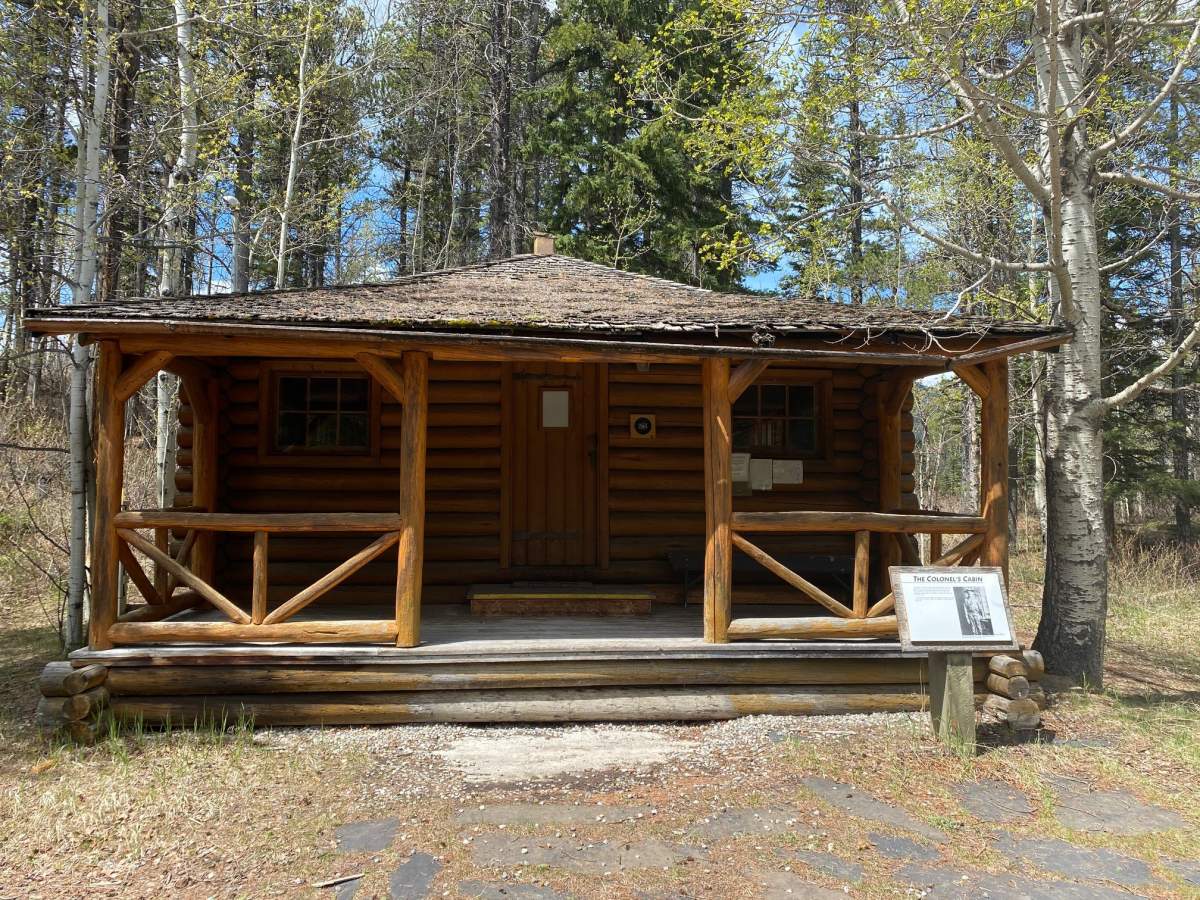It is a stretch of road lined with postcard perfect views and promises of escape and a sense of freedom. But 80 years ago, sitting under the same shadows of the Rocky Mountains, was Camp No. 130 (also known as Kananaskis Camp).

The Canadian government sent prisoners of war there and interned those deemed to be “enemy aliens.”
On June 10, 1940, when Italy declared war on the United Kingdom, Canada enacted the War Measures Act and rounded up hundreds of Italian Canadians.
“That’s when the great sweep occurred,” said Dr. Arianna Davies, an author and historian.
“The greatest number was Ontario, Quebec and Vancouver,” said Davies from her Edmonton home.
Davies said between 600 and 700 Italian Canadians were sent to internment camps, including six from Alberta, who were sent to Camp 130.
“Certainly there were hardcore fascists in Canada,” said Davies. “Whether they were capable of sabotage… the idea they would undermine Canada is rubbish really.”

Get breaking National news
“A lot of Canadian young men of Italian ancestry served in the military, so the record serves for itself.
“All of the other Italians — whether they fit the criteria for being enemy aliens or not — were all tarred with the same brush. People had to report to the RCMP, Italians’ communities ceased to exist. So there’s this sense of shame,” said Davies, who was born in Italy.
The stigma would be felt by new Italian immigrants to Canada in the years following World War II.
Luigi Audia’s family settled in Calgary in the 1950s. He didn’t know anyone who was interned but he definitely heard the stories and felt the racism perpetuated by it.
“We were picked on as kids a lot,” said Audia, who is a director of Calgary’s Italian Cultural Centre.
“Part of the group that was declared enemy aliens — that doesn’t go away overnight. Then you have the stigma that you came from a country that was part of the enemy.
“Systemic racism was ever present in agencies we had to deal with as kids.”
On Thursday, the Trudeau government is planning on formally apologizing to Italian Canadians.
In 1990, then-Prime Minister Brian Mulroney apologized for the war internment to the National Congress of Italians Canadians in Toronto. But because it wasn’t inside the halls of Parliament, some didn’t feel it was official.
Davies has advocated for a formal apology and says “all Italian Canadians feel an apology is owed.”
But Audia questions the timing of it and hopes it’s not just a blanket apology; but directed specifically at the families of those who were wrongly imprisoned.
“An apology should be to the innocent. I’m not saying they all were, but a majority were,” he said.
“There was a wrong committed against Italians at the time and yes, an apology should have been done way earlier as opposed to now. I don’t know why.
“It’s nice but we could have done with something more targeted.”








Comments
Comments closed.
Due to the sensitive and/or legal subject matter of some of the content on globalnews.ca, we reserve the ability to disable comments from time to time.
Please see our Commenting Policy for more.